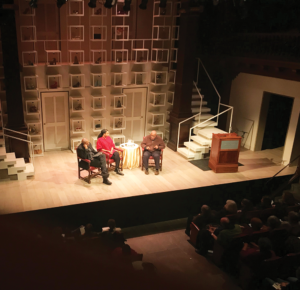
In celebration of what would have been revolutionary Jamaican singer Bob Marley’s 73rd birthday, the Folger Shakespeare Library hosted renowned Jamaican poets Kwame Dawes and Safiya Sinclair for a reading Feb. 5.
Although it was originally advertised as a salute to the contributions of reggae artists like Marley, the event was focused on the celebration of diverse cultures, impressing upon audiences that differences in identity must continue to be celebrated.
The Folger Library’s theater was a fitting venue to host the reading, with an inclusive and intimate atmosphere. The two-story seating is arranged in a semicircle, and the wooden floors, columns and balcony are reminiscent of the Globe Theatre in London. On stage, the speakers sat in front of an impressive transparent shelving system, creating an aesthetically pleasing, but not overly distracting, environment.
Sinclair kicked off the event with a reading from her book “Cannibal.” Born and raised in Montego Bay, Sinclair has received several prestigious awards, including a Whiting Writers’ Award, an American award presented annually to 10 emerging writers. Before reading, she discussed her poems with a conversational tone that perfectly complemented the intimate nature of the event.
Her modesty transformed into confidence as she began reading her first poem, setting the tone for the rest of her readings.
Sinclair’s poetry stayed consistent in its structure and sound; every few syllables, her tone would vise, before ultimately dropping a little at the conclusion of a line. Her poetry focused primarily on colonialist themes, specifically centering around the character Caliban in William Shakespeare’s “The Tempest.”
“[Caliban] represents for many people in the Caribbean and the African diaspora a father figure of post-colonial identity,” Sinclair said.
Typical of many writers from former colonies, Sinclair breaks from British conventions and subtly incorporates Patois — or the dialect of a common people — into her poetry, which is rich with pride for Jamaica. At the event she shared experiences of growing up with a Rastafarian father, recovering from the aftermath of the 1988 Hurricane Gilbert and coming to the United States as an immigrant, making her poems all the more poignant for audience members.
Sinclair’s dialogue was not limited to her experiences in Jamaica. Ears also perked up when Sinclair described her experiences as a black immigrant in Charlottesville, Va.
Following Sinclair’s reading Kwame Dawes, a former professor of liberal arts at the University of South Carolina and a winner of the Guggenheim Fellowship for Creative Arts, performed his work. Before beginning his reading, Dawes commented on how grateful he is for poets like Sinclair, noting it would be his “only avuncular comment for the night.”
Avuncular, referring the kindness or geniality often associated with an uncle figure, best captures Dawes’ time on stage. From his stride to the content of his poetry, it was clear the audience was in the presence of a learned man happy to share his knowledge. His wisdom stems from his global life: Dawes was born in Ghana, raised in Jamaica and completed his education in Canada and the United States.
Like Sinclair’s poetry, Dawes’ is Jamaican to its core. He strives to conserve “the language of the tribe” and not have it replaced by inauthentic words.
Dawes differentiated himself from Sinclair, however, by the emotional range of his delivery. He would swing from a hushed, somber tone to a melodic cheer in the space of a stanza. His movements were fluid and corresponded with the mood of the line, in contrast to Sinclair’s still composure.
Of the poems he read, the ones that garnered the most applause described his life in America as a black person. In an era when identity politics are so prevalent, it is not surprising that questions of identity and marginalized voices came up in the discussion. While some may find those topics a bit heavy, the two poets handled them with ease and discussed important issues with a welcome light-heartedness.
Through their honest poetry, Sinclair and Dawes exemplify how minority stories should be told. They offered a refreshing contrast to the confrontational nature of today’s media climate.
Although reggae was acknowledged in several parts of the event — including in the readings and discussions — the genre was not celebrated as much as advertised. Instead, the event presented a heartening message, encapsulated by Dawes: “We are all part of a diaspora.”
















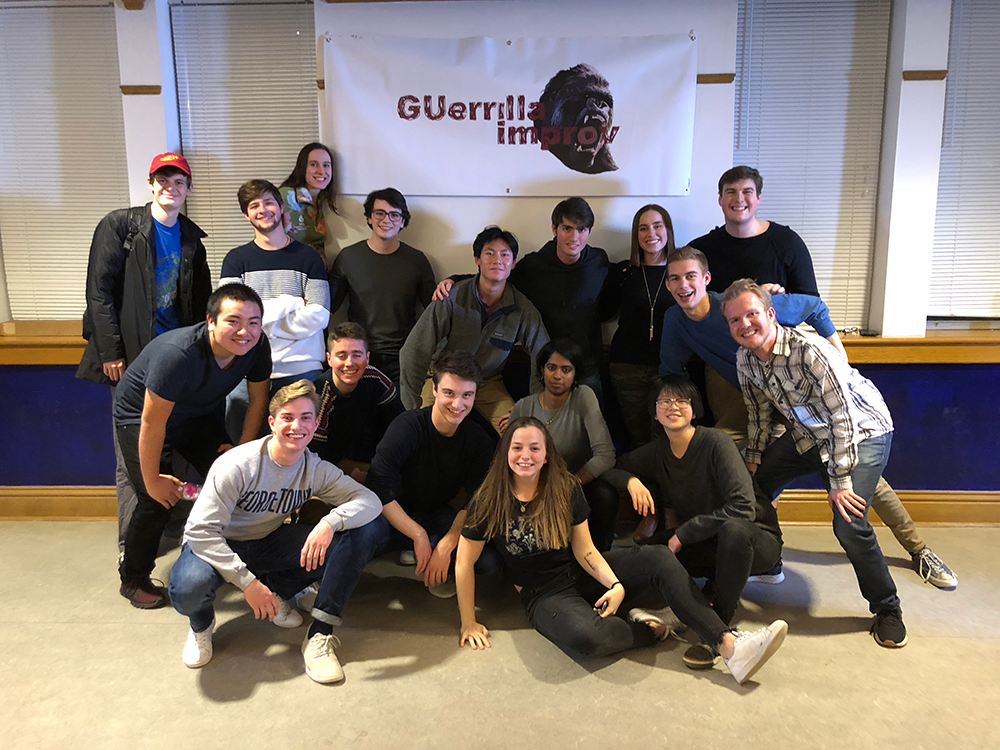
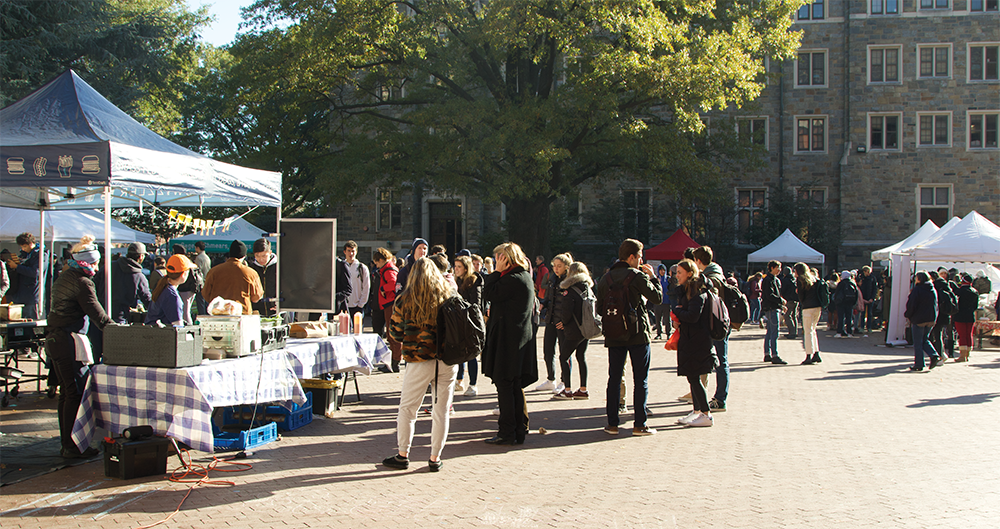
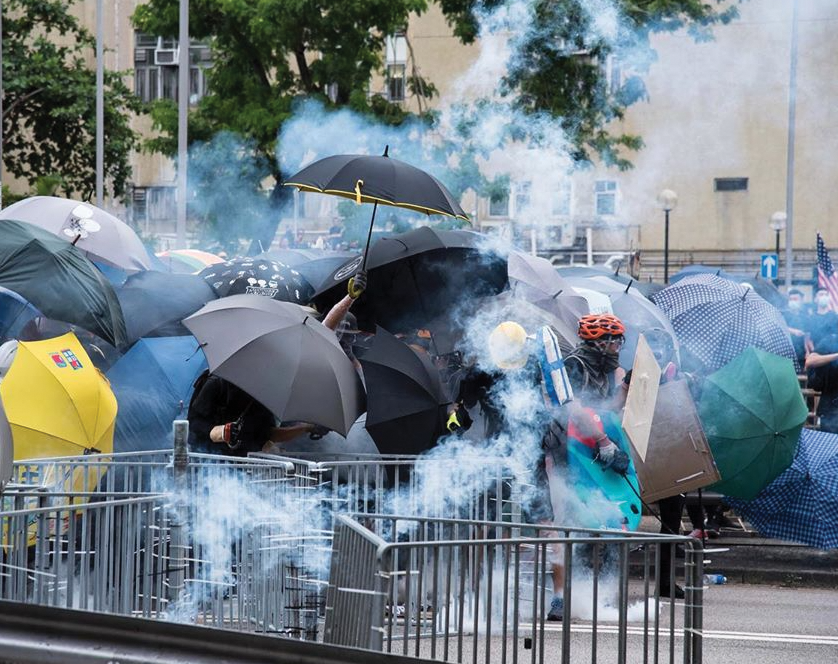
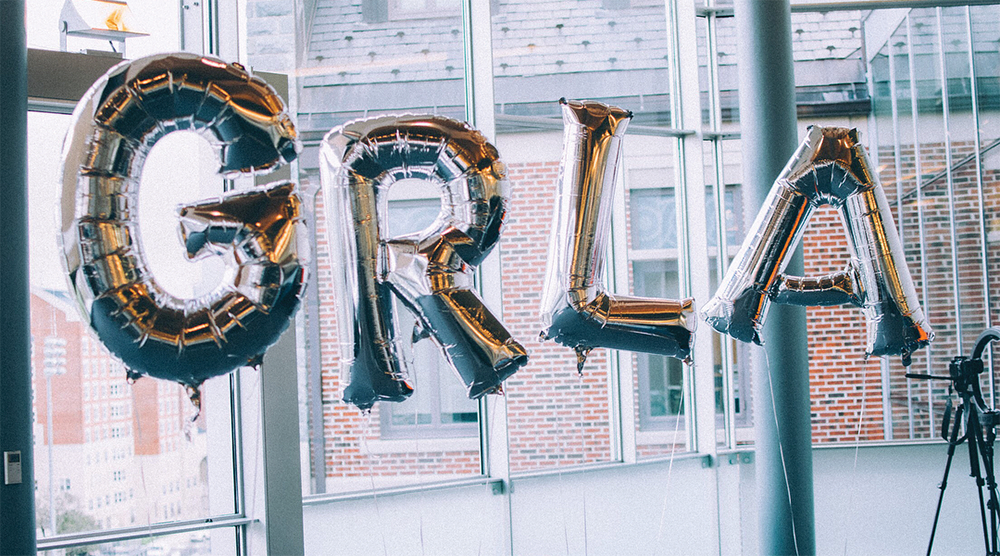

Seymour • Feb 9, 2018 at 5:43 am
Was the event recorded?
If so, how do Inaccess the recording.